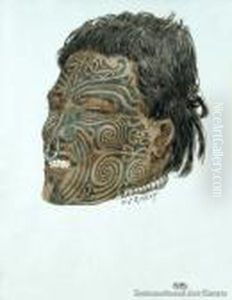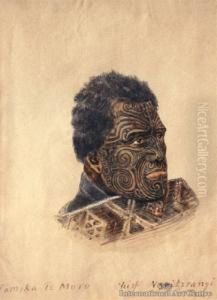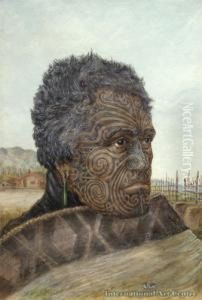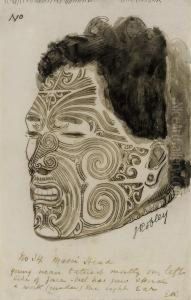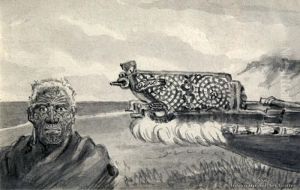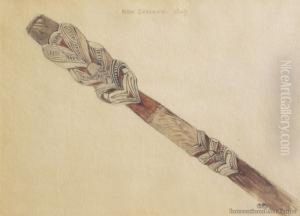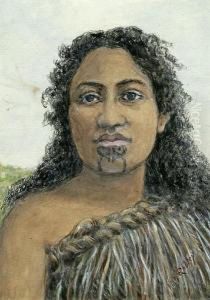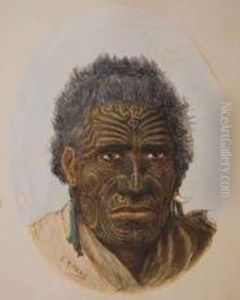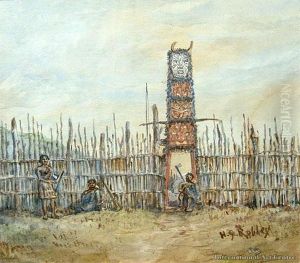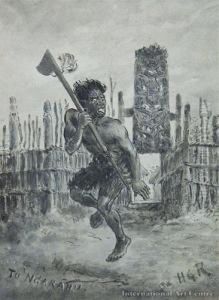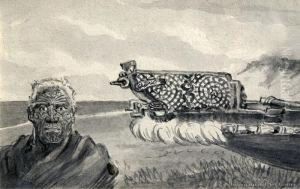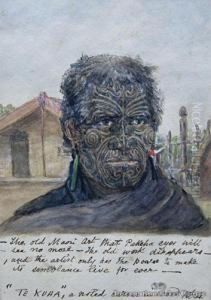Horatio Gordon Robley Paintings
Horatio Gordon Robley was a British army officer, artist, and ethnographer, renowned for his work related to the Māori people of New Zealand. Born on June 28, 1840, in Funchal, Madeira, he was the son of a captain in the British Army. Robley exhibited artistic talent from a young age and was known for his skilled watercolors and illustrations.
Robley joined the British Army and served in New Zealand during the British colonial campaigns against the Māori, known as the New Zealand Wars, which lasted from 1845 until 1872. His experiences during these conflicts profoundly influenced his later work. He developed a deep interest in Māori culture, particularly in the traditional practice of tattooing, known as 'tā moko.'
Beyond his military career, Robley's enduring legacy is his extensive ethnographic work. He published a book titled 'Moko; or Maori Tattooing' in 1896, which remains an important source for understanding the intricacies of tā moko and its significance within Māori society. His illustrations in the book, based on his observations and interactions with the Māori people, are considered some of the most accurate and comprehensive records of moko from that period.
Robley also amassed a significant collection of Māori artifacts, including 'mokomokai,' or preserved tattooed heads, which were considered sacred by the Māori. His interest in these artifacts was both artistic and anthropological. However, the trade in mokomokai has been viewed critically in modern times due to its exploitative and colonialist implications.
After retiring from military service, Robley continued to write and illustrate. He exhibited his work in various venues and was recognized for his detailed and culturally informative illustrations. He lived to the age of 90, passing away on October 29, 1930. Today, Horatio Gordon Robley is remembered for his contribution to the documentation of Māori culture and his unique role as a soldier-turned-ethnographer at a time when the British Empire was expanding its reach.
